Yakoub Rabi, 52, insists that settlers hurled a stone at his car, which hit his wife Aisha’s head, killing her, last Friday night; Israeli authorities probing incident
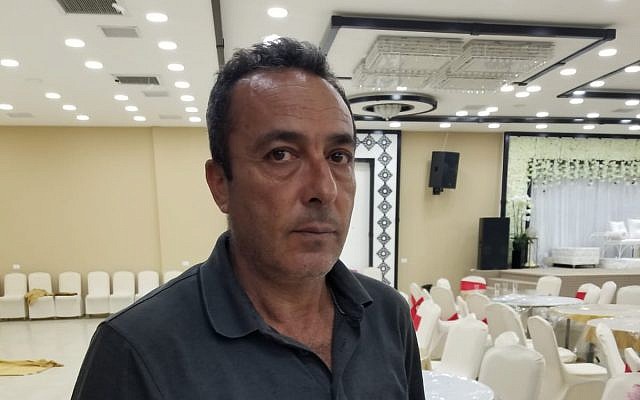
Aisha Rabi had been preparing to celebrate the marriage of one of her eight children. She had spent days arranging logistics for the wedding and purchasing supplies for it.
But the 47-year-old mother’s preparations for her child’s marriage came to an abrupt end on Friday when a rock the size of a large tissue box flew through the windshield of the car her husband Yakoub Rabi was driving, and killed her.
“Aisha, my daughter Rama and I were driving back home from Hebron last Friday night,” Yakoub, 52, said in a brightly-lit hall in the middle of Biddya, a village in the northern West Bank. “All the sudden, a huge three kilogram-rock came through the windshield and hit Aisha’s head. After speaking to medics on the phone, I drove to a nearby health clinic in Hawara, but by the time I arrived, she was dead.”
On Sunday, Yakoub patiently hosted dozens of male mourners and guests at the hall from the morning until the late evening, as they offered their condolences for the loss of his wife.
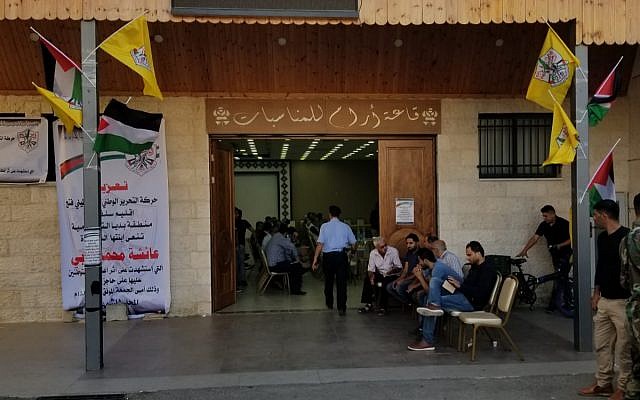
The mourners and guests including Palestinian Authority Prime Minister Rami Hamdallah and Fatah Vice Chairman Mahmoud Aloul sat beside Yakoub, and together they drank coffee and ate dates, a custom often observed in Palestinian places of mourning.
Female mourners and guests sat at the nearby home of Yaqoub and Aisha.
The incident occurred on Route 60, a main north-south artery used by both Israelis and Palestinians that cuts through the West Bank, south of Tapuah Junction, an area known as a hub for right-wing extremists. Suspicion has run high that the attack was carried out by settlers, but authorities have not released the results of their investigation of the incident and there have been no announcements of any arrests.
The Shin Bet security service confirmed on Saturday that it and the nationalistic crime unit of the police’s Judea and Samaria (West Bank) District were probing the killing, which is slated to remain under a gag order until Tuesday.
Yakoub, who speaks Hebrew and has worked construction in Israel since the early 1980s, said he had no doubt that settlers hurled the rock that killed his wife.
“The rock came from an elevated area on the right side of the road next to the settlement, which is not close to any Palestinian village,” he said, referring to the Rehelim settlement just south of the Tapuah Junction.
“Also after it was thrown, I heard someone say two words in a Hebrew accent, but I could not make out what was said. I am sure settlers killed her. ”
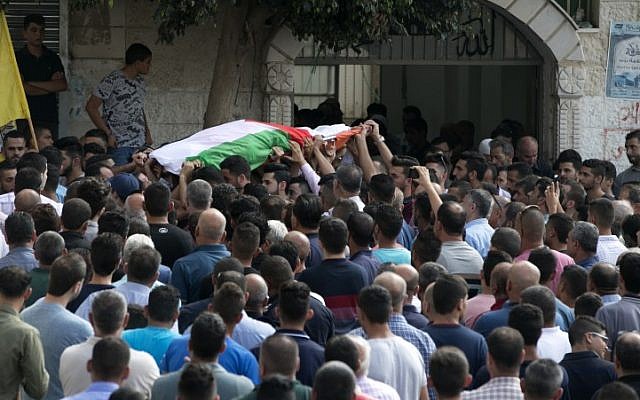
Yakoub said he went back to the place where the rock hit his car with Israeli intelligence officers late Friday night and recounted for them what happened.
A spokesman for the Samaria Regional Council did not respond to a request for comment about Yakoub’s accusation that settlers threw the rock.
Yakoub said he hoped Israeli authorities would take action to achieve “justice” for his family.
When asked what he meant by “justice,” he said Israel “needs to arrest those who threw the stone and put them in prison,” adding, “It is important that happens so others know there will be a price to be paid.”
On Sunday, PA President Mahmoud Abbas offered his condolences to Yakoub in a phone call, and told him that it is not acceptable for what happened to Aisha “to come to pass without punishment,” according to the official PA news site Wafa.
Abbas also declared Aisha a “martyr of the martyrs of our people who sacrificed their blood for the homeland,” the Wafa report said.
Yakoub said he also received phone calls from many of his Jewish colleagues in Israel over the past two days.
Rama, Yakoub and Aisha’s 8-year-old daughter who was sitting in the back of the car when the rock came through the windshield, has been struggling to deal with the aftermath of her mother’s death, Mutasem, a family member said.
“I was with Rama today at her mother’s grave,” he said. “She was sitting there and calling out ‘I want my mom.’ She is in a terrible psychological state.”
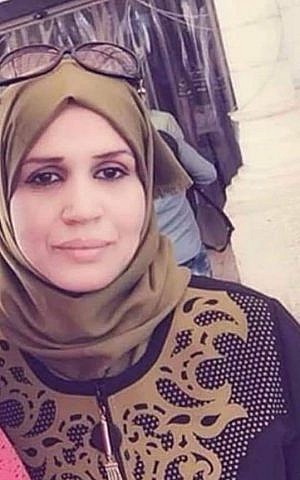
Yakoub also said he was not sure how he would now be able to care for all of his children whose ages range between 8 and 28.
“Aisha always would care for our children when I would be away at work,” he said. “I don’t know who is going to care for our kids now, especially the younger ones.”
On Saturday, thousands of mourners attended a funeral procession in Biddya for Aisha, who was wrapped in a Palestinian flag.
As the mourners marched through the center of the village holding Aisha’s remains up, they chanted, “There is no god, but the God. The martyr is the beloved of God.”
On Sunday, the center of Biddya, a village known for the high number of residents who work in Israel and the nearby Barkan Industrial Zone and Ariel settlement, was relatively quiet. (On Monday, a Palestinian man from Biddya attempted to stab a soldier, according to the IDF, and was killed.)
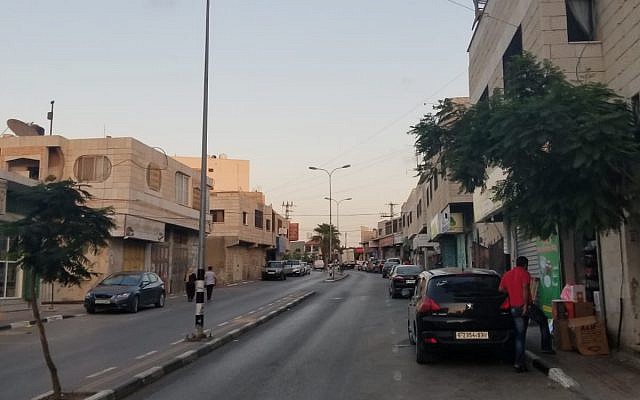
Muhammed, a store owner, said he hoped Aisha’s death would not be in vain.
“There is so much death and destruction happening on a weekly basis,” he said, speaking in Hebrew. “I hope people don’t just go about their normal lives after Aisha’s death, but rather realize that enough is enough. The violence needs to end.”
As reported by The Times of Israel
